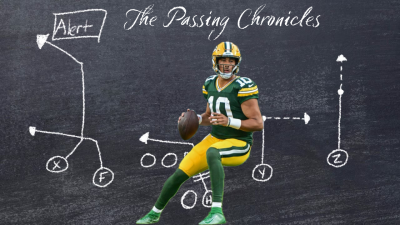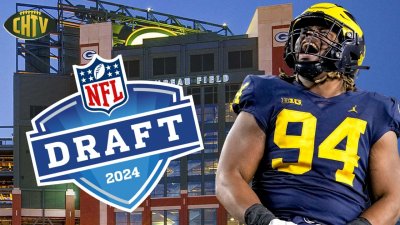The Rookie Sacrifice
By admin
Andrew Brandt of the National Football Post thinks that the NFL veterans will sacrifice the rookies in the next collective bargaining agreement.
"The issue of rookie contracts is a red herring argument in the collective bargaining negotiations between the NFL Players Association and the NFL. A dozen or so players skew the scale, yet the vast majority of the 250 drafted rookies represent a fixed, cheap and reasonable cost for management. As for the NFL wanting to create a new system, it should be careful what it wishes for.In the new Collective Bargaining Agreement, rookies will be sacrificed. They have no dog in this fight. The union, responding to pressure from its veterans, will serve them up. This year’s top picks may receive the last windfall deals for rookies."
I couldn't possibly agree with Brandt more.
As Brandt notes, only a dozen or so of the 250+ draft picks, less than 5% of each draft class, skew the pay scale. Teams, fans, and media salivate over a player with the talent of a Matthew Stafford, but become incredulous at the thought of guaranteeing a rookie $41.7 million dollars, even if he's being asked to turn around a franchise that went 0-16 the previous season, and is located in the most depressed part of the country. (And c'mon, after viewing this, how the hell can you not love Matthew Stafford?)
In the NFL, players aren't paid based on what they have done, they're paid based on what they're going to do. When the future of the franchise's success is placed squarely on your shoulders, which is the case for players chosen in the top 10-15 picks, receiving between $5 and $8 million dollars per season in guarantees over 5 or 6 seasons isn't that outlandish. The "crazy" money on rookies is spent on these picks, which is partly why, in a quarterback-driven league the NFL, prospects at the "premium" positions--QB, LT (protects the QB), DE (pressures the QB), and CB (disrupts passes from the QB)--are the one worth being chosen in the upper half of the first round, where that funny money resides.
(FYI: A punter/kicker was chosen in the Top 5 of the 2010 CFL Draft. Seriously. And Al Davis wasn't even involved.)
Yes, there are busts at the top of the first round, and there's (literally) no bigger example than quarterback JaMarcus Russell, who was released two weeks ago after pocketing $39 million over three seasons from the Oakland Raiders. But altering the pay scale for rookies isn't going to keep busts out of the top of the NFL Draft, it's just going to reduce the financial risk to owners like Al Davis, who is crazy enough to burn the first overall pick on a guy because he can throw the ball really far from one knee, or will guarantee $23 million dollars to a wide receiver who runs really fast, but can't catch.
In other words, altering the way the NFL does business based on the personnel decisions of Al Davis probably isn't the greatest of ideas.
But if the NFL and NFLPA wants to institute a pay scale, that's their prerogative. I do, however, have two questions:
1. Where are they going to roll prices back to?
Peyton Manning signed a six-year, $48 million dollar contract as the #1 overall pick of the 1998 NFL Draft. Fred Taylor, the 10th pick that year, received an $11 million dollar contract. Where do those advocating a rookie wage scale suggest it begin?
2. What will the maximum contract length be?
NFL careers are tragically short, so would NFL owners and veterans be willing to accept a three-year maximum for all rookie contracts, with no restricted free agency or franchise/transition tags? As appealing as that may be to some owners, do not expect them to present such a united front on this issue. Many of the top decision-makers in NFL franchises these days are former/current head coaches, who value player control much more than they do the bottom line.
Decisions on top draft choices by smaller market teams would be affected by a three-year contract maximum. The Jacksonville Jaguars would know that they could be developing that All-American quarterback into a Pro Bowl quarterback, only to watch him sign with Dallas, Chicago, or a New York-based team before they've been able to surround him with other pieces that are necessary to win.
Developmental quarterbacks like Tim Tebow would be impractical first-round picks if teams only held their rights for three seasons. Teams are just starting to figure out how to evaluate players from spread offenses in college. Imagine what a three-year contract max. would do the scouting industry, or draftniks like Mel Kiper, Todd McShay, and Mike Mayock?
Ultimately, I do think their will be a rookie pay scale in the next collective bargaining agreement. NFL teams want it, NFL veterans want it (even though Karlos Dansby, Demeco Ryans, and Patrick Willis' mega-contracts may not happen without Aaron Curry's rookie deal), and the fans and media want it, making it one of the few things that all sides agree needs to happen for labor peace to fall over the National Football League.
There are still a few of us out here who think it's a red herring.











